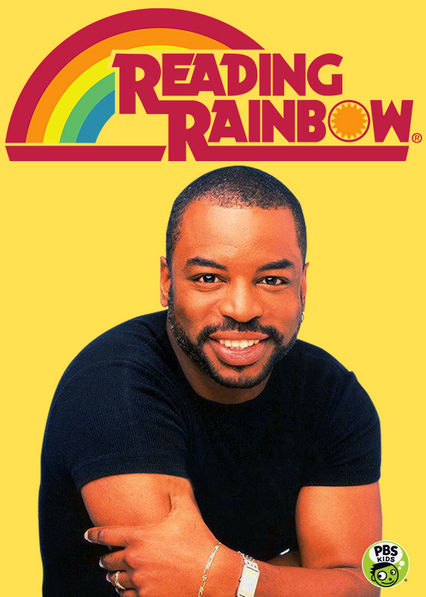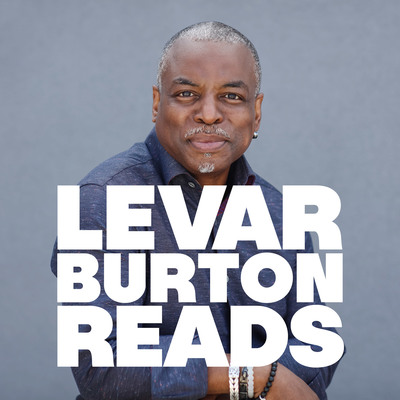Tell Me A Story: Levar Burton Reads
Admit it. You are singing this song in your head right now. And possibly craving fruit loops.
I’m a child of the 80s. And 90s. I’m technically a member of a little sliver generation in between Gen X and the Millennials, and even that depends on who wrote the chart you’re looking at. But the point is, Levar Burton was a pivotal figure in my childhood. First through “Reading Rainbow”, the long running and highly acclaimed literacy program for children on PBS, and then via “Star Trek: The Next Generation”. I still remember the first season of Reading Rainbow: it premiered in 1983, and I was an avid watcher. When “The Next Generation” premiered four years later, I was just at an age to appreciate it. So when I heard that Burton was launching a new podcast series for adults via Stitcher, I was quick to subscribe.
It has been an outstanding addition to my podcast feed.
“Levar Burton Reads” is an adult version of that childhood PBS favorite: each installment is a 25-40 minute narration of a short story. Unlike “Reading Rainbow”, the podcast focuses on Speculative Fiction, from straight up Science Fiction (the first episode was “Kin” by Bruce McAllister, a story about a young boy who attempts to hire an alien assassin to protect his little sister) to modern fantasy (Neil Gaiman’s “Chivalry” makes an early appearance).
You probably remember that Burton is a solid reader. I won’t lie: he’s not the best there is, and some early episodes still show traces of his earlier work for children in their execution. But the stories he chooses are far more nuanced, and better suited to an adult audience. My favorite so far was his presentation of Lesley Nneka Arimah’s “What it Means When a Man Falls from the Sky”, a meditation on grief and trauma against a post-climate change landscape. It’s an emotionally complex piece, and one that he reads with a quiet subtlety that suits well.
Burton has always prioritized representation and diversity, and his podcast is no exception. Recent episodes have included Ken Liu, Amal el-Mohtar, and Laura Chow Reeve. But as his inclusion of Gaiman, McAllister and Elmore Leonard shows, this view to inclusiveness doesn’t need to shut out older, more mainstream classics. Indeed, Burton’s whole approach as a curator reads as a refutation of the tired meme that a demand for diverse storytellers is some kind of SJW attempt at crypto-censorship. Bringing Nigerian-born authors to the table with their distinct viewpoint doesn’t mean someone else loses a seat. It means the table gets bigger. The beauty of digital media is that there is always room for another bookshelf: we don’t have to delete old standards and beloved favorites to allow gifted and brilliant newcomers their due.
I came to “Levar Burton Reads” out of nostalgia. But while nostalgia will get the 90s kids to turn in, it wasn’t longing for “Reading Rainbow” in footie jammies that has me eagerly awaiting each new episode. It’s the fact that I’m discovering new and different work that I might not have encountered otherwise. Burton has successfully parlayed his familiarity and his impeccable taste in fiction into another quality entry in his own body of work. Let’s hope “Levar Burton reads” comes to rival the twenty-plus year run of his earlier endeavors.



I love this: “Bringing Nigerian-born authors to the table with their distinct viewpoint doesn’t mean someone else loses a seat. It means the table gets bigger. The beauty of digital media is that there is always room for another bookshelf: we don’t have to delete old standards and beloved favorites to allow gifted and brilliant newcomers their due.”
“[T]he tired meme that a demand for diverse storytellers is some kind of SJW attempt at crypto-censorship”
It’s a “tired meme” because it is so often true. People just pushing their politics are not the friends of people actually trying to raise the profile of diverse storytellers.
M. Tuesday, could you give me an example?